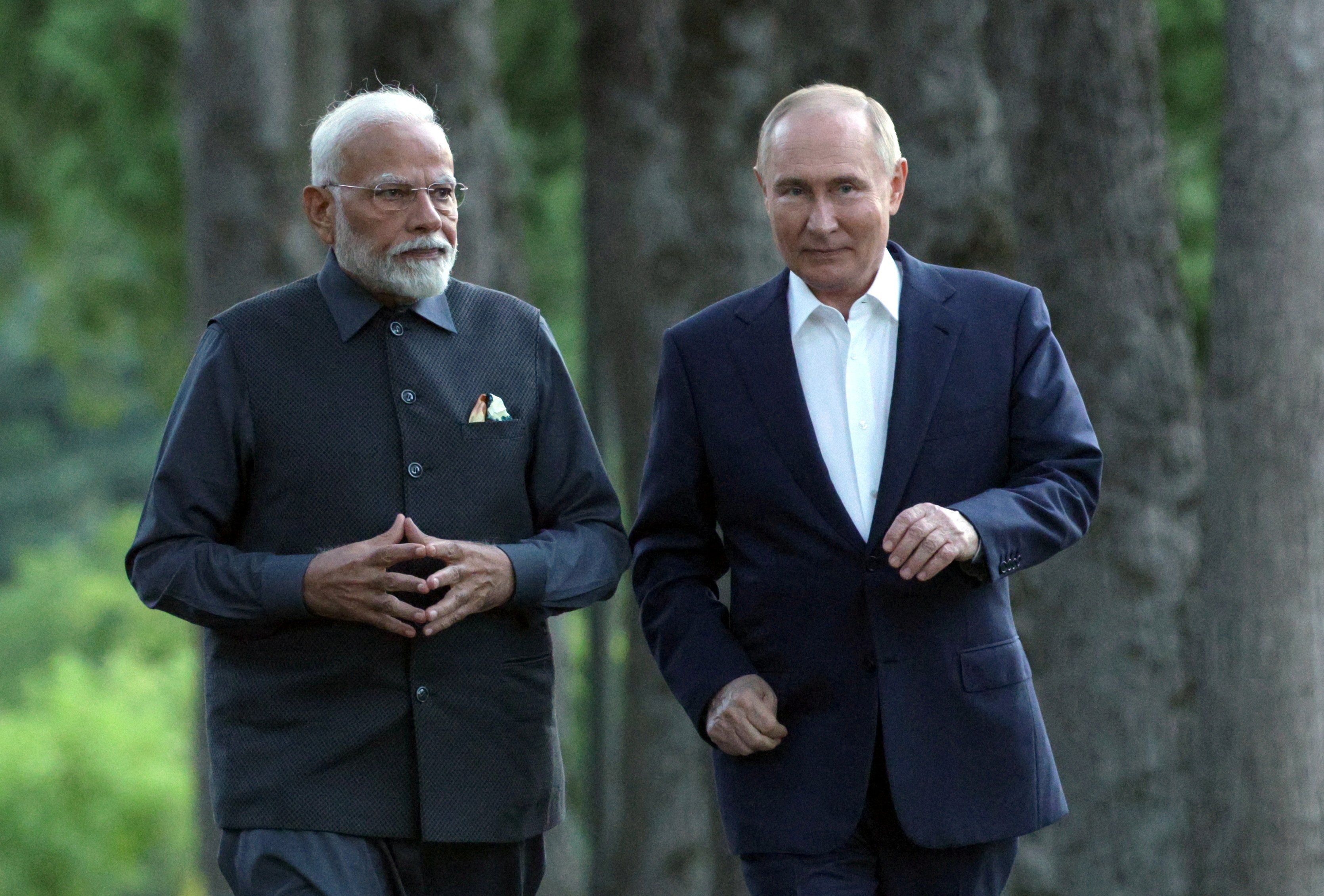India’s Prime Minister Narendra Modi appeared to take a swipe at Vladimir Putin during their meeting in Moscow on Tuesday, even if only a subtle one.
Just moments after the Russian president welcomed him to the Kremlin, Modi lamented that his “heart bleeds” whenever children are killed in war.
A timeless statement, yes – but the timing itself was a statement: The day before, the two leaders embraced just hours after an apparent Russian airstrike destroyed a children’s cancer hospital in the Ukrainian capital of Kyiv.
Moscow has claimed, so far without evidence, that the hit came from a Ukrainian air defense system. The tragedy occurred as Moscow targeted cities across Ukraine with one of its biggest missile barrages in months.
The nonaligned line. Modi has, gently, criticized Putin’s invasion before, but the bigger picture remains the same: India has kept up good relations with Moscow throughout the war.
In part, that’s pragmatic. A rapidly growing Indian economy enjoys buying steeply discounted Russian oil. But it’s also ideological. Modi is keen to show that while he is glad to partner with the US over shared concerns about China, India – the most populous democracy and the fastest-growing major economy – has its own prerogatives.
